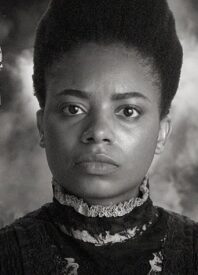
Roger Ross Williams tackles his share of pop culture documentaries. but the only film I saw of his is God Loves Uganda. That doc is more macro and conflict heavy in comparison to other other homophobia in Uganda doc Call Me Kuchu. Almost a decade later, he’s back, using documentaries to fight another good fight with Stamped from the Beginning. He adapts the Ibrahim X. Kendi book with the same name. Together, with other interviewees, they tackle Eurocentric history and its anti-Black racism. That is one Goliath of a foe, but Williams and his small army of Davids are successful at what they try to accomplish. Some names here will seem familiar – for example, I already knew that Abraham Lincoln wasn’t the hero that everyone thinks he was.
But other names seem like echoes of ones I already knew about. I know about Bartolome de las Casas who advocated the use of Africans as slaves, but I didn’t know about Gomes de Zurara who also wrote some damning things about Africans. The Portuguese slave trade across the Atlantic Ocean was just beginning. Zurara, in comparing Africans to beasts, propagate a lot of ideas that are still prevalent to this day. I know about the accusations that Harriet Jacobs had a white abolitionist ghostwriter, but not about Phyllis Wheatley. Wheatley, by the way, is the first Black-American poetess. Publishing her work shook the Eurocentric idea that only people of European descent can create anything from the seven arts. A board of white Americans, then, put her on trial to verify the intelligence that she and Black people have.
Williams throws out images and names of historical and current figures who propagate anti-Black rhetoric. No one is safe, except maybe Beyonce. His use of art and views on depictions of Black sexuality may prompt some discourse. Like, there must be a happy medium. People like Megan Stallion and other Black people have the right to express their sexuality. And they can do so without allegedly propagate white rape of Black women. I did write about Williams’ macro approach towards the one other documentary of his that I saw, but he ties those macro elements to how it personally affects his interviewees. A film like this expectedly comes from a place of righteous outrage, from a perspective and experience where suffering is prevalent. Thankfully, this beautiful film ends with hope, a place where all races can be free from forms of brutality.
- Rated: NR
- Genre: Documentary
- Release Date: 11/15/2023
- Directed by: Roger Ross Williams
- Produced by: Alisa Payne, David Teague, Roger Ross Williams
- Studio: Netflix

